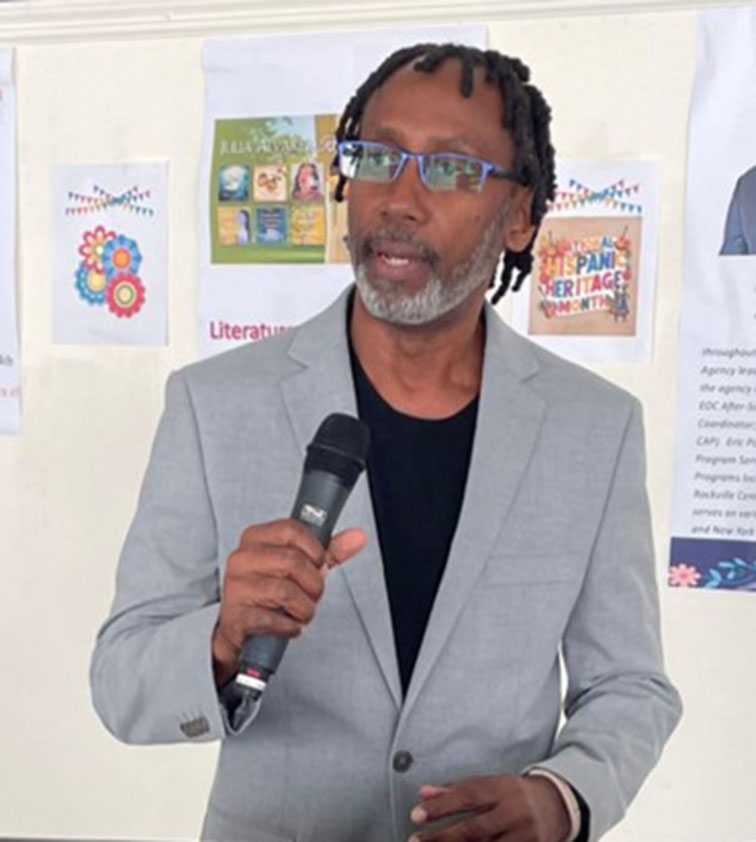Copyright Atlanta Daily World

Life has a way of forcing us to pause and take inventory of what really matters. One phone call, one diagnosis, one doctor’s report—and suddenly, the goals, plans, and savings you’ve been building your whole life take on a different meaning. Marcus, 56, from Miami, just got that call. Doctors diagnosed him with an aggressive illness that could return within two years. He’s debt-free except for a $150,000 mortgage. He’s sitting on a net worth of $2.4 million—built through decades of grinding as an architect, living below his means, and saving and investing faithfully. Marcus isn’t a flashy guy. He’s mission-driven. He runs a small nonprofit helping at-risk youth—his way of giving back after growing up rough himself. But now he’s facing a painful question many of us never prepare for: “Do I keep working and leading my cause, or do I step away, travel, knock out my bucket list, and enjoy what time I have left?” That question hits deep because it’s not just about money—it’s about meaning. The Money’s Handled, But the Purpose Needs Clarity Let’s start with the facts. Marcus has done what most people never do. He’s built wealth without losing purpose. He’s financially secured, community-minded, and debt-light. The man did everything right. But when your health gets rocked, everything you thought mattered gets re-evaluated. Money’s not the issue anymore—time is. And when time becomes your most limited resource, your strategy has to shift from accumulation to fulfillment. Secure the Foundation Before Marcus spends another dollar, he must lock down the essentials. When facing a serious illness, the first move isn’t to spend—it’s to secure. He should confirm that his health plan covers advanced treatments and understand every deductible, copay, and out-of-pocket maximum. If eligible, use a Health Savings Account to manage medical costs tax-free. Check for long-term care insurance—because extended hospital, nursing-home, or rehabilitation stays can drain wealth faster than expected. A $2.4 million net worth sounds strong, but if Marcus stops working and no longer contributes, constant withdrawals for care, living expenses, and emergencies can erode that balance quickly. Without careful management, even a solid nest egg can vanish faster than planned. If Marcus has a wife and children, ensuring they’re financially protected is critical. Update his will, trust, powers of attorney, and beneficiary designations. Review all life and disability insurance policies to guarantee adequate coverage. The goal isn’t just preserving assets—it’s protecting his family’s stability and peace of mind long after he’s gone. Redefine the Goal At 56, Marcus doesn’t need to retire. He needs to reposition. He’s reached financial security. He was working towards financial independence. That means he’s earned the right to design his life on his terms. But he must answer one question honestly: What’s most valuable now—impact, experience, or peace? If impact still fuels him, he can scale back instead of quitting. Transition into an advisor role at his nonprofit. Train the next generation to carry the mission forward. That keeps his legacy alive while freeing up time to rest, reflect, and recharge. If experience is his new priority, it’s time to use his money for memory-making experiences, not just market gains. Travel, reconnect with loved ones, revisit dreams that got pushed aside. He’s earned that freedom. This isn’t about retirement—it’s about redefining purpose. Spend Intentionally, Not Emotionally When life delivers a gut punch, it’s tempting to throw discipline out the window. But the same financial habits that built wealth can now sustain peace. Marcus should spend, but with wisdom. Buy back time: Outsource what drains you. Hire help for your nonprofit or household. Use money to eliminate stress, not add to it. Invest in health: This is where money’s power shines. Fund treatments, nutrition, therapy, and self-care that improve quality of life. Health is now the highest-return investment. Make memories, not regrets: Travel with intention. Visit people and places that matter most. Don’t chase luxury; chase meaning. Fund your living legacy: If helping youth is his passion, create a scholarship or foundation now. Don’t wait until death to do good—do it while you can see the impact. Pay Off the Mortgage: If Marcus can pay off his $150,000 mortgage, do it. One less headache and one less bill. The average $1,800 mortgage payment equals an immediate, guaranteed return no investment can match. A “low” 3 percent mortgage rate still means money going out. No interest rate beats zero—and peace of mind always outperforms speculation. Create a Purpose Budget This isn’t about cutting back—it’s about aligning money with what matters most. Marcus’ new budget should serve life, not limit it. Think in three categories: Live: Maintain your lifestyle comfortably. You’ve earned it. Love: Spend generously on people and shared experiences. Legacy: Give to causes that reflect your values and future vision. Marcus could safely draw 4 percent from his investments—about $96,000 a year—without threatening his nest egg. That’s enough to maintain his lifestyle, fund meaningful experiences, and continue his mission. The goal isn’t to hoard wealth, but to put it to work—circulating money into joy, health, and purpose while he still has time to enjoy it. Protect the People Who Matter Even with emotions running high, smart planning still counts. Marcus should confirm that all financial accounts have joint ownership or clear beneficiaries. If he owns a life insurance policy, explore whether it includes “accelerated benefits,” which can provide access to funds for care while alive. For those without such policies, self-funding care through liquid assets becomes critical. He should also discuss his legacy with loved ones—what he wants to give, who he wants to help, and how he wants to be remembered. These conversations can be hard, but they’re a gift of clarity. They prevent confusion and conflict later. Choose Life—Fully and Freely Money can’t buy health, but it can buy how you experience life. Too many people postpone joy for “someday.” Marcus can’t afford that luxury anymore—and truthfully, none of us can. This isn’t about reckless spending; it’s about purposeful living. He doesn’t need to rush through a bucket list like he’s racing the clock. He just needs to live each day intentionally—working if it gives meaning, resting if it brings peace, spending if it creates fulfillment. The True Measure of Wealth In the end, wealth isn’t about numbers—it’s about living with purpose while you still can. Marcus’ story reminds us all: protect what you’ve built, cherish who you love, and spend your time—and your money—on what truly matters. That’s real wealth. That’s real life. (Damon Carr, Money Coach & Tax Pro can be reached at 412-216-1013 or visit his website at www.damonmoneycoach.com) Helping you flip your finances from stressed to blessed — one smart decision at a time.



